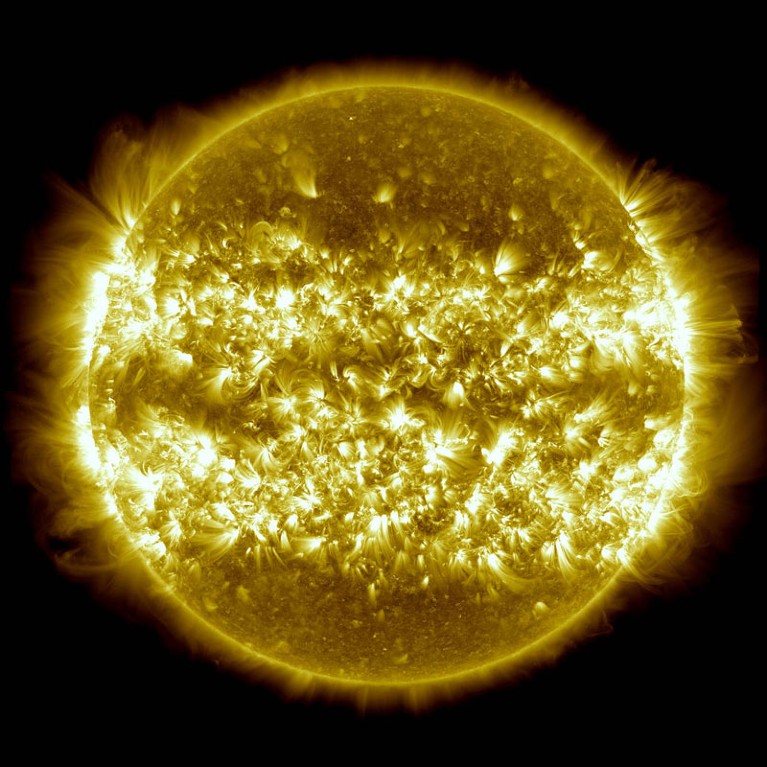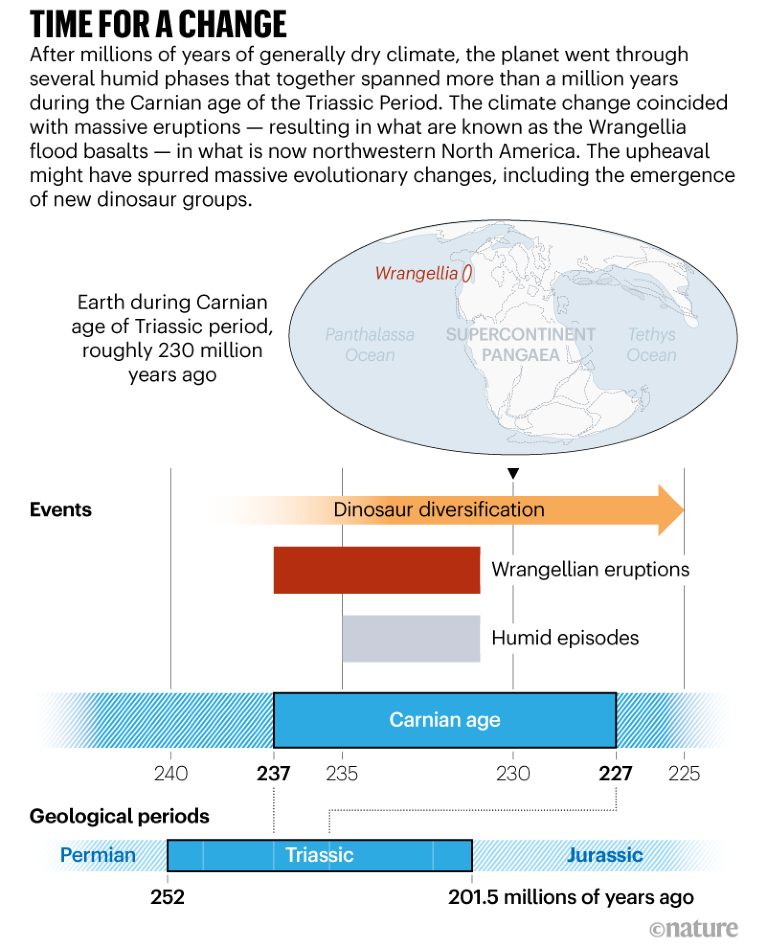Hello Nature readers, would you like to get this Briefing in your inbox free every day? Sign up here

Charged particles that flow around and away from the Sun can disrupt radio networks on Earth.Credit: NASA/SDO/AIA/S. Wiessinger
Probe uncovers secrets of the solar wind
NASA’s Parker Solar Probe has caught the best-ever glimpse of the birthplace of the solar wind — a small hole in the star’s corona near the equator. During a close encounter with the Sun in September, the spacecraft also spotted strange spikes in the wind and observed it rotating around the star faster than expected. That finding suggests that scientists’ understanding of how stars rotate more slowly as they age could be wrong. The results could also help researchers to better prepare for periods when the solar wind is particularly turbulent and knocks out radio and other communications as it washes over Earth.
Read more: The discoveries kick off a golden age for solar exploration, says a Nature editorial.
Reference: Nature paper 1, Nature paper 2, Nature paper 3 & Nature paper 4
Malaria cases are falling worldwide
The number of malaria infections recorded globally has fallen for the first time in several years. The World Health Organization estimates that there were 228 million reported cases in 2018, a decrease of around 3 million from the previous year. This drop can be attributed mostly to fewer cases in southeast Asia, where funding increased to fight the disease. But in other parts of the world, malaria is on the rise: there were one million more cases in Africa, home to 94% of the people who died from the disease.
Reference: World Malaria Report
Most climate models were right
Most climate-change models used in the past 50 years did a good job of predicting the future global mean surface temperature. Researchers analysed 17 forecasts published between 1970 and 2007. For 10 of them, there was no statistically significant difference between their output and historic observations. Five of the seven models that missed the mark got back on track when their inputs were tweaked to reflect factors the original scientists hadn’t known, such as the fact that we would ban ozone-depleting substances in 1987. The findings should bolster policymakers’ confidence that current climate models can be relied on, say researchers.
Reference: Geophysical Research Letters paper
Features & opinion
Words matter in research evaluation
Impact factors and other metrics offer a misleading simplicity, and terms such as ‘high impact’ or ‘world-class’ are so ambiguous that they can’t be applied judiciously, argues Anna Hatch. Hatch, the programme director for the Declaration on Research Assessment (DORA), says that to move forward on evaluation reforms we must ditch feel-good slogans that lack any fixed meaning in favour of clearly defined terms.
Exploring a world of a thousand dimensions
A new data visualization method can help cell biologists understand the complex data sets created by high-throughput methods such as single-cell transcriptomics. PHATE (Potential of Heat-diffusion for Affinity-based Transition Embedding) reduces multi-dimensional data to two- or three-dimensions. It offers an advantage over other tools by preserving patterns such as continual progressions, branches and clusters — revealing the biological structures that underlie the data.
Go deep in the Nature Biotechnology News & Views | 5 min read or get the gist in systems biologist Smita Krishnaswamy’s ‘tweetorial’ on Twitter.
Reference: Nature Biotechnology paper
Why kids’ TV is so weird
From Teletubbies to Sesame Street, creators are designing helpful television shows for very young children that draw on the latest psychology research about how tiny tots think. That results in a simple, repetitive style of storytelling that can sometimes seem downright bizarre to adults.
Infographic of the week

Source: A. Ruffell, J. Dal Corso & M. Benton Geoscientist 28, 10–15 (2018).
